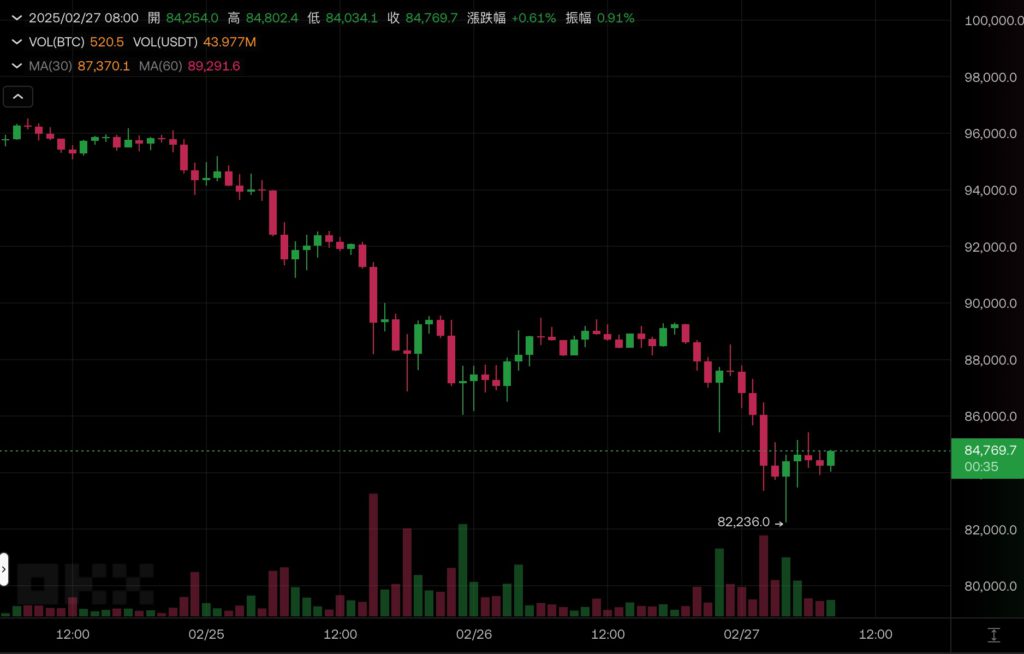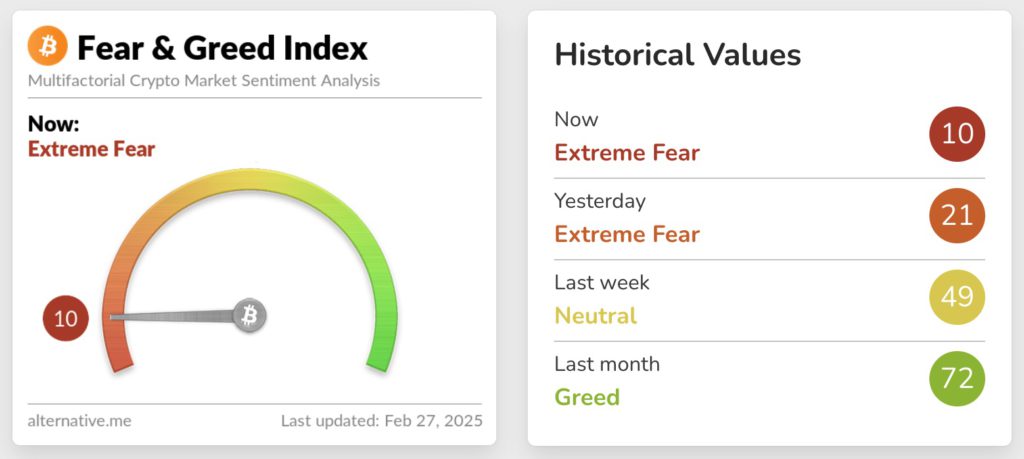BTC fell below its previous low last night after the US stock market opened, and a few hours ago, US President Trump said in his first cabinet meeting that the establishment of the EU was to "screw up" the US, and after he announced a 25% tariff on imports from the EU, BTC plunged again in the early morning, hitting a new low of $82,236 since mid-November last year.
It has rebounded slightly before the deadline, currently trading at $84,769, down 4.36% in the last 24 hours.

Standard Chartered Bank: Bitcoin is Likely to Fall Further
As for whether Bitcoin has reached the bottom of the stage and it's time to buy the dips, Geoff Kendrick, head of crypto research at Standard Chartered Bank, pointed out in a recent interview that Bitcoin could fall further, possibly by 10%.
Kendrick explained that the recent Solana turmoil and the gradual cooling of the meme coin craze in its ecosystem have led to low investor sentiment, which is likely to continue to affect the overall cryptocurrency market, putting downward pressure on Bitcoin as well.
However, Kendrick also said that the decline in US Treasury yields could boost Bitcoin's price, but now is still not the best time to buy Bitcoin:
From a long-term perspective, against the backdrop of slowing economic growth and rising inflation expectations, US bond yields touched a low of 4.32% on Tuesday, the lowest level since mid-December.
The decline in yields may prompt investors to sell and seek assets with better price performance, such as BTC, but now is still not the best time to start buying Bitcoin.
Bitcoin's Next Support Level Drops to $71,000
On the other hand, Nic Puckrin, founder of The Coin Bureau, said that another major factor behind the crypto market's struggles this year is market concerns about tariffs, inflation, and high interest rates. At the same time, the launch of DeepSeek has also raised doubts about the US's dominance in artificial intelligence (AI), further exacerbating the risk-averse sentiment in the US stock market, which has also spilled over to Bitcoin. Given that these issues have not yet shown any clear signs of improvement, Bitcoin may also fall further in the short term:
If concerns about tariffs continue to escalate, Bitcoin may fall further in the short term. Its key support level will drop to $71,000. Unless there is a turnaround in the overall economy, which is unlikely, Bitcoin is unlikely to rebound.
Bitcoin's Fear and Greed Index Hits a Two-and-a-Half-Year Low
According to data from Alternative, the Bitcoin Fear and Greed Index has fallen again from 21 yesterday to 10, a state of extreme fear, hitting a new low since June 2022. Although this does not mean that the market will immediately reverse, based on historical experience, the market may not be far from a short-term bottom.

Bloomberg senior ETF analyst Eric Balchunas also posted on X yesterday (26th) that Bitcoin spot ETFs, one of the main buying forces behind Bitcoin's rise, saw nearly $1 billion in outflows on February 25, and have seen $1.8 billion in outflows this week.
However, overall, these outflows are less than 2% of the current size of Bitcoin spot ETFs, and 98% of investors still choose to hold.







